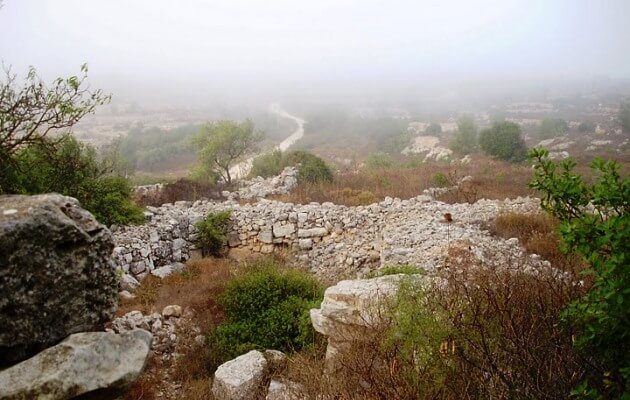
Returning to Beth El
Having survived the confrontation with Esau and his private militia, the mysterious nighttime struggle at Penuel, the abduction of his daughter Dinah, and the battle against the city of Shechem — Jacob finally made his way back to Beth El. Twenty years earlier, Jacob had stayed overnight in Beth El, dreaming of angels and Divine protection as he fled from his brother Esau. Now he would fulfill his decades-old promise to worship God in that holy place.
In preparation for this spiritual journey, Jacob instructed his family:
“Remove the foreign gods that are in your midst. Purify yourselves and change your clothes. Then we will rise and ascend to Beth El. There I will construct an altar to God, Who answered me in my hour of trouble, and Who accompanied me in the path that I took.” (Gen. 35:2-3)
The first time Jacob had come to Beth El, he erected a matzeivah, a pillar with which to worship God. Now, Jacob built a mizbei'ach, an altar. What is the difference between worshipping God with a pillar or with an altar?
The Torah later prohibits erecting a matzeivah, even if it is to be used to worship God (Deut. 16:22). The Sages explained that the matzeivah “was beloved in the time of the Patriarchs, but abhorred in the time of their descendants“ (Sifri Shoftim 146).
What brought about this change in status?
Service of the Klal
The difference between a matzeivah and a mizbei'ach is primarily a physical one. A matzeivah is a single large stone, while a mizbei'ach is an altar constructed from many stones. The switch from pillar to altar indicates a paradigm shift that took place in the way God was to be served in the time of the Patriarchs and in the time of their descendants.
Each of the three Avot — Abraham, Isaac, and Jacob — had his own unique way of serving God. Abraham served God with his overriding traits of love, kindness, and hospitality. Isaac served God with awe and submission, traits he acquired at the Akeidah. And Jacob, “the scholarly man who dwelled in tents [of Torah],” served God through Torah study.
In the time of the Patriarchs, each of the Avot was the leading light of his generation. His special trait dominated the era; his path of serving God was the appropriate path for that time. This period was aptly represented by the metaphor of the matzeivah: a single stone, a single way of serving God.
When Jacob returned to the Land of Israel, however, the situation had changed. He arrived at Beth El with twelve sons, the twelve tribes of Israel. No longer was there a single spiritual path for the generation. This was the start of a new era: the service of the klal, the collective, in which each individual fills a particular role in order to reach a common national goal. Each of Jacob’s sons developed his own way of serving God, based on a unique combination of the spiritual paths of the three Avot.
To fully function, the Jewish nation requires a variety of talents and fields of expertise. Spiritual leadership, in the form of teachers of Torah and kohanim, came from the tribe of Levi. Kings and national leaders arose from Judah. Issachar excelled in producing scholars and judges. Other tribes specialized in commerce, agriculture, and national defense.
The altar Jacob built from many stones upon his return to Beth El embodied the new paradigm of serving God. This was no longer a time of a single, uniform service of God. There were now many paths to serve God, which joined together in one altar, as all aspired toward the common goal of Divine service.
"Change Your Clothes"
With these divergent paths to serve God, however, a new problem arose. Each group may come to believe that its path is the most important and belittle the efforts of others. As they prepared to worship God with the multiple-stone mizbei'ach at Beth El, Jacob realized that it was necessary to take special measures to unite his family.
Jacob therefore instructed his family, “Remove the foreign gods in your midst.” The Sages taught that the evil inclination is a “foreign god” (Shabbat 105b). Jacob pleaded that they remove the evil inclination which convinces us that others are “foreign.” He wanted his family to recognize that, on the inside, the disparate members of the Jewish people are united in purpose and soul. For this reason, the Torah refers to Jacob’s family as “seventy soul” (Ex. 1:5), in the singular, emphasizing that the souls of Israel are united at their source.
It is only the externals — our deeds and actions — that separate us. Therefore Jacob requested that his family purify themselves by changing their clothes, by removing the superficial exterior which conceals our true inner unity.
Then, Jacob announced, we will be ready to ascend to Beth El and worship God together. There we will serve God using a mizbei'ach, composed of many stones and many paths — but all working together toward the same ultimate goal of serving God.
(Sapphire from the Land of Israel. Adapted from Midbar Shur, pp. 74-75)





